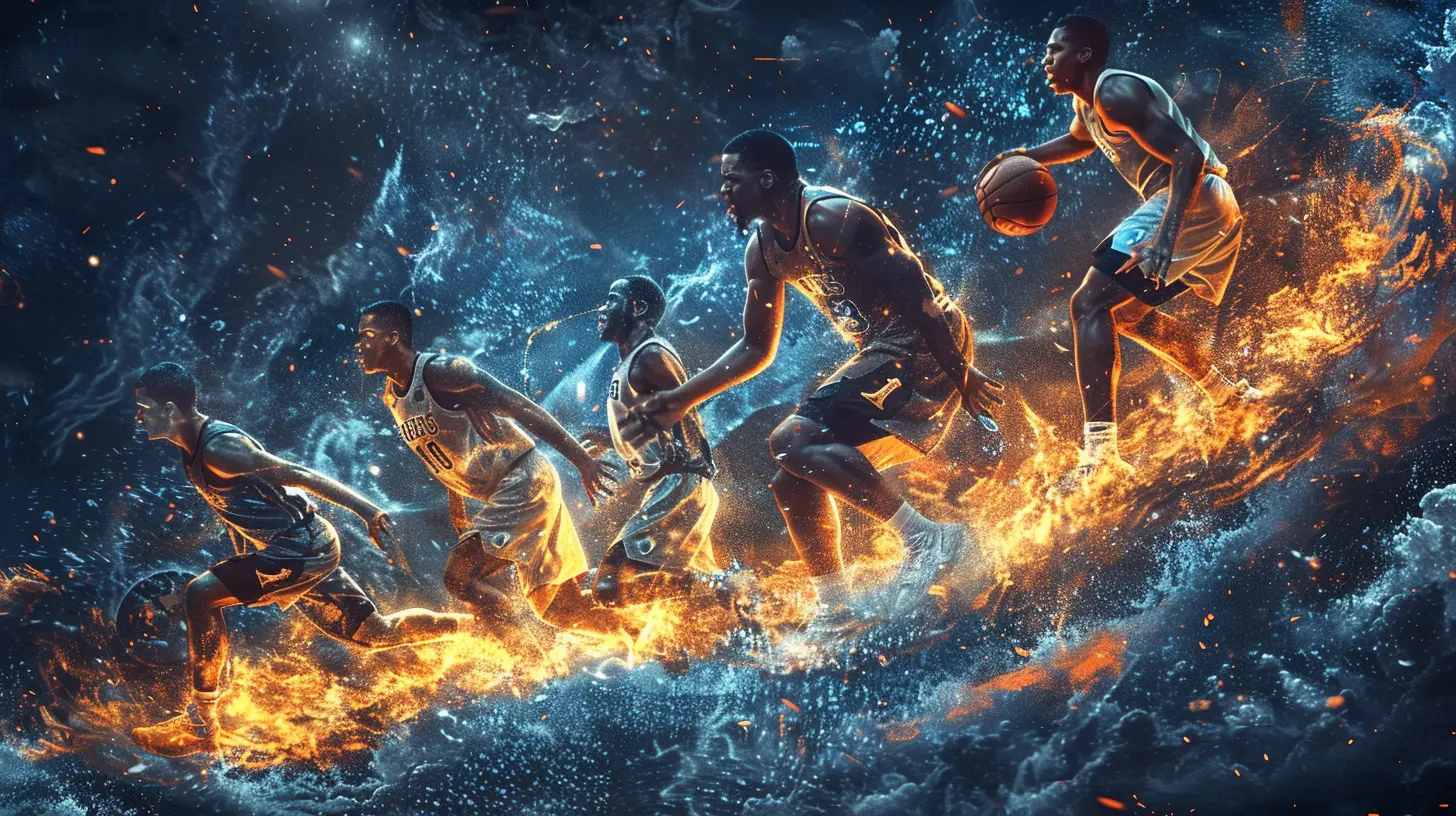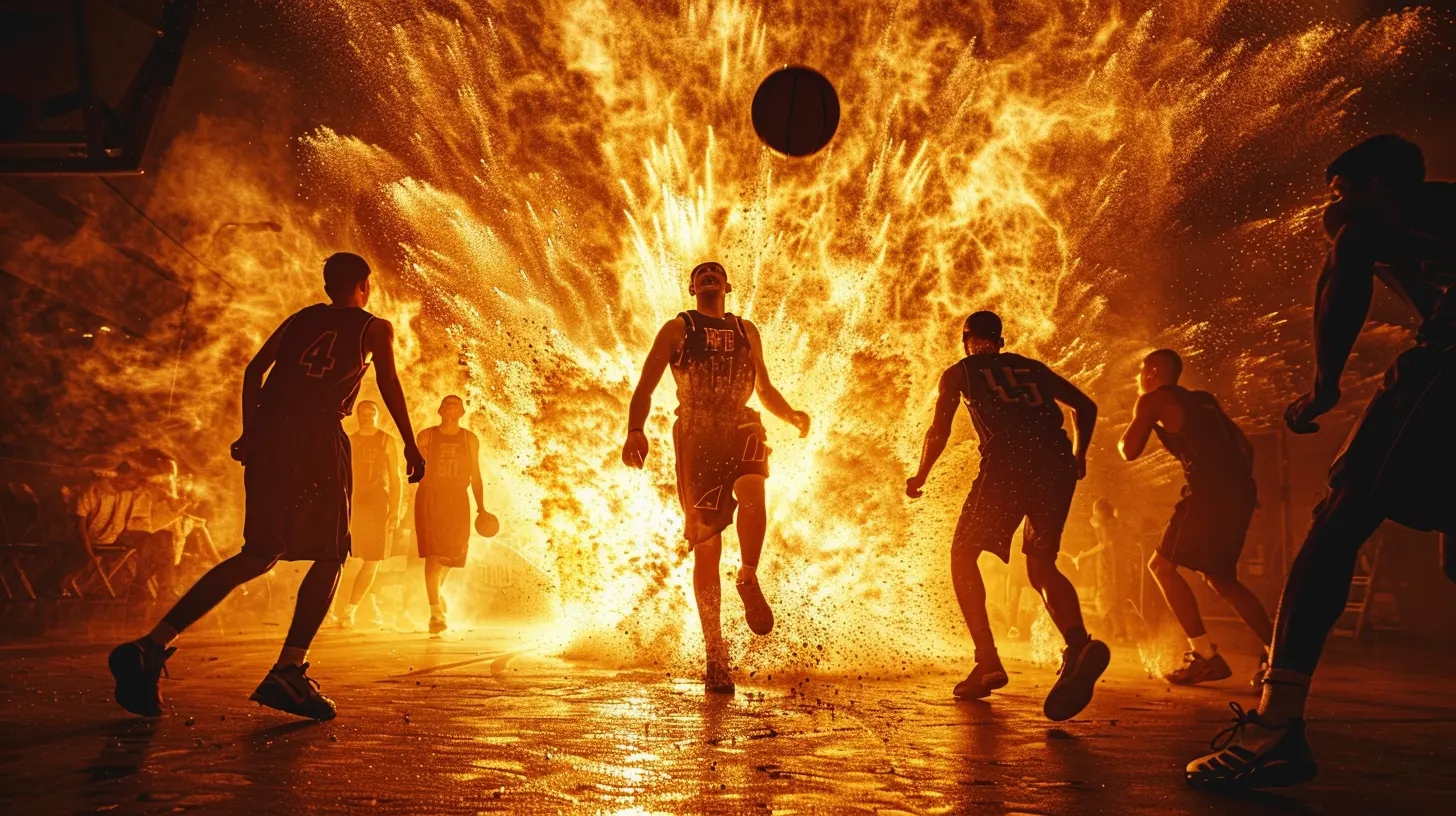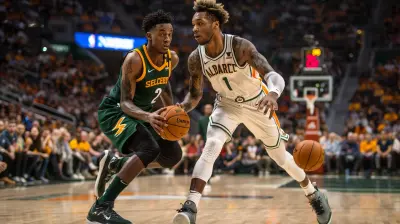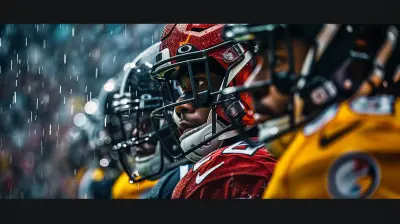Building Team Chemistry: The Key to Success on the Court
1 October 2025
When you think about winning in sports—especially basketball—what's the first thing that comes to mind? Superior talent? A star player? Maybe even a great coach? While all of these are undeniably important, the one thing that often flies under the radar but plays a massive role in championship runs is team chemistry.
Team chemistry is like that secret ingredient in grandma’s famous recipe. You might not be able to see it, but you sure can taste it when it’s there—and notice it when it’s not.
Let’s dig deep into what team chemistry really means, why it matters, and how to build it for lasting success on the court.
What is Team Chemistry Anyway?
Think of team chemistry as the invisible thread that ties players together. It’s trust, communication, shared goals, and mutual respect all rolled into one. It’s not just about being friendly with each other; it's about syncing up mentally and emotionally to perform as a unit.Imagine a symphony orchestra. Each musician can be a virtuoso, but if they’re not in harmony, the music’s a mess. A basketball team is no different. You need that cohesion for everything to click.
Why Team Chemistry Is a Game-Changer
You can have five All-Stars on the floor, but without chemistry, they might look like five strangers playing pick-up ball. Here’s why team chemistry is such a powerful driver of success:1. Better Communication
Strong chemistry leads to better on-court communication. Players with a tight bond almost read each other's minds. They call out screens, rotate on defense instinctively, and move the ball with flow. When everyone’s on the same wavelength, communication becomes smooth and efficient—even non-verbal.2. Trust When It Matters
Ever seen a player pass up a good shot to give a teammate a great one? That’s trust. Teams with chemistry trust each other to make the right play. It gives everyone the confidence to play their role without second-guessing.3. Team Resilience
When things go south—say you’re down 15 in the fourth quarter—teams with chemistry don’t crumble. They rally. They believe in each other. That bond holds them together and gives them the emotional grit to battle back.4. Unselfish Playstyle
Nobody cares who gets the credit when chemistry is high. You see more assists, better ball movement, and willingness to do the dirty work—like diving for loose balls or boxing out. That selfless hustle wins games.
The Building Blocks of Team Chemistry
So, how do you build this magical glue that holds teams together? Spoiler alert: it doesn’t happen overnight. But with intention and effort, it’s 100% possible.1. Create a Shared Purpose
First things first—everyone on the team needs to be rowing in the same direction. Whether it’s winning a championship, making the playoffs, or simply improving each game, clarity of purpose is critical.When players buy into a shared goal, personal agendas fade. The “me” turns into “we,” and that’s when the magic begins.
2. Develop Off-Court Relationships
You know the saying, “Play for the name on the front of the jersey, not the one on the back”? That’s easy to do when you genuinely care about your teammates. Off-court bonding—like team dinners, game nights, or even post-practice hangouts—creates friendships that translate to trust and loyalty on the court.3. Encourage Open Communication
Teams that thrive are the ones where everyone feels heard. That means encouraging rookies to speak up and veterans to listen. Good chemistry starts with honest conversations—about roles, expectations, and even frustrations.Conflict is inevitable. But with open communication, those conflicts become opportunities for growth rather than division.
4. Celebrate Roles and Contributions
Everyone wants to feel valued. From the superstar to the sixth man to the bench spark plug—every role matters. Coaches and leaders who recognize contributions, big and small, foster a culture where everyone feels essential to the team’s success.That emotional investment leads to greater effort, engagement, and cohesion.
5. Lead With Emotional Intelligence
This one's on the coaching staff and locker room leaders. Great leaders don’t just call plays—they sense the emotional currents of the team. They lift spirits, mediate tension, and set the tone for unity.When players sense strong leadership, they’re more likely to buy in and stay locked in.
How Star Players Influence Chemistry
You might think star players can do whatever they want and the team will follow. But that’s not always the case. In fact, how a team’s top players act can either build or break chemistry.When star players show humility—pass when double-teamed, defend with intensity, or give credit to teammates—they set the cultural tone. That tells everyone, “No ego here. We’re in this together.”
But if the star is selfish or divisive? Expect the chemistry to rot from the inside out.
Bottom line: Leadership isn’t about scoring the most points—it’s about lifting the team, even when the spotlight’s not on you.
Real-Life Examples of Stellar Team Chemistry
Let’s take a quick look at some teams that showed outstanding chemistry and turned it into championships.The 2014 San Antonio Spurs
This squad was the textbook definition of team basketball. No single player dominated the ball. They moved it beautifully—quick passes, unselfish plays, always finding the best shot. Their chemistry wasn’t just good; it was poetic.They dismantled the Miami Heat’s Big Three in the Finals because of their trust, rhythm, and sheer cohesion.
The 2008 Boston Celtics
The “Big Three” of Garnett, Allen, and Pierce could have been a selfish trio. Instead, they bought into Doc Rivers’ system, supported each other, and held one another accountable. That chemistry turned three alpha stars into the ultimate team.When Chemistry Goes South
Let’s flip the script—what happens without chemistry?Miscommunication. Frustration. Finger-pointing. And lots of L’s in the standings. You’ve probably watched teams full of individual talent flame out because players weren’t on the same page.
It’s not that they weren’t good—it’s that they weren’t good together.
Building chemistry doesn’t guarantee wins, but a lack of it almost guarantees failure.
How Coaches Can Make or Break Team Chemistry
You can’t talk about team chemistry without mentioning the coaching impact. A coach can either be a catalyst or a roadblock.Great Coaches:
- Promote a team-first culture- Encourage player-led leadership
- Manage egos effectively
- Communicate clearly and consistently
- Give everyone a role and purpose
Toxic Coaches:
- Play favorites- Ignore locker-room dynamics
- Fail to mediate conflicts
- Over-control or micromanage
- Focus only on results, not relationships
In other words, coaching isn’t just X’s and O’s—it’s people management at the highest level.
Building Chemistry During Adversity
Here’s the real test of team chemistry: tough times.When the team’s on a losing streak or the locker room is frustrated, chemistry either fractures or fortifies. The best teams don’t just have chemistry when things are going great—they hold it together during the storm.
Adversity is a chemistry crucible. You find out who’s truly locked in and who’s just along for the ride.
Team building activities, honest team meetings, and emotional support go a long way in weathering these storms.
The Fan Factor
Believe it or not, fans can feel chemistry too. You can see it in the way a team celebrates together, picks each other up, and plays with unity. It’s contagious. Fans gravitate toward teams that show love and loyalty to each other.And when the fans buy in, the energy becomes electric—and that’s a whole new level of home-court advantage.
Final Thoughts: Chemistry Is a Competitive Edge
In basketball—and really, in any team sport—chemistry is one of the most valuable assets you can build. It doesn’t show up in the box score, but it shows up where it counts: wins, culture, and long-term success.It’s not just about getting along. It’s about syncing up your mindset, effort, and goals so that as a team, you become more than just the sum of your parts. You become something special. A brotherhood. A family.
So, if you’re a coach, a player, or even just a fan dreaming of greatness—don’t overlook chemistry. Build it, nurture it, protect it… and watch the success follow.
all images in this post were generated using AI tools
Category:
BasketballAuthor:

Easton Simmons
Discussion
rate this article
1 comments
Valentina Blair
Great article! Team chemistry is the heartbeat of any successful squad. When players connect, they elevate each other’s game and create an unstoppable force on the court. Remember, it’s not just about skills, but the bonds we build that lead to victories. Keep fostering that unity and watch success unfold!
October 12, 2025 at 4:07 AM

Easton Simmons
Thank you! I completely agree—team chemistry truly is essential for success. When players connect, amazing things happen on and off the court!


